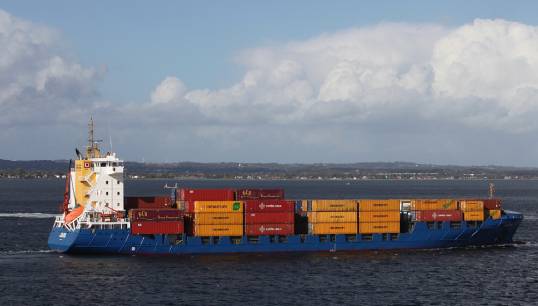MAIB urges rethink on watchkeeping in 'the digital age' as collisions persist
6 August 2025

The UK Marine Accident Investigation Branch (MAIB) has called for a fundamental reassessment of human watchkeeping practices following a series of serious collisions involving merchant vessels in 2024.
In its annual report published in July 2025, the MAIB has highlighted that traditional watchkeeping is increasingly misaligned with modern digital bridge systems, noting that 'humans do not make good monitors' and are often 'reluctant to use system alert functions that would alert them to impending problems' – a phenomenon the MAIB said it would seek to explore in more depth during future investigations.
Among the incidents under investigation that are mentioned in the report are the fatal collision between Verity and Polesie and the dramatic and tragic collision of the Solong into the anchored Stena Immaculate. These follow earlier cases such as Scot Carrier and Karin Høj, which the MAIB report attributes to poor watchkeeping.
The report also flags vulnerabilities in the UK fishing fleet, with four vessels foundering or flooding in 2024. While no lives were lost in those incidents, two crew fatalities from marine accidents occurred on well-crewed vessels as a result of unsafe working practices.
During 2024, the MAIB recorded 1,631 reports of accidents to UK vessels worldwide plus further incidents involving vessels within UK coastal waters, for a total of 1,753 vessels.
Of those 1,510 recorded notifications were within the scope of the Merchant Shipping (Accident Reporting and Investigation) Regulations 2012 – which means the person or organisation receiving the recommendation must consider it and respond to the UK chief inspector of marine accidents within 30 days. Despite an 85% recommendation acceptance rate, concerns remain over implementation delays.
The MAIB examines and investigates all types of marine accidents to or onboard UK vessels worldwide, and other vessels in UK territorial waters, and makes recommendations to prevent reoccurrences. The branch published 20 reports in 2024, doubling its output from the previous year, and aims to match that in 2025. The MAIB now also encourages the administrations of foreign-flagged vessels that suffer accidents in UK waters to lead investigations where appropriate.
Tags
More articles
Social connectivity at sea – share your experience with WMU
How do you stay connected with loved ones while at sea? What challenges do you face with communication, wellbeing, and rest?
Nautilus welcomes 'significant' Trinity House plans for two new specialist vessels
Trinity House has launched a tender for two state-of-the-art new build multi-function buoy handling ships (MFTs) under its 'Futures Afloat' programme.
